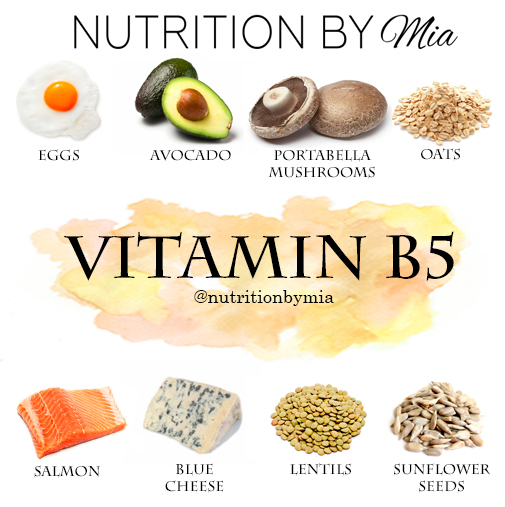
Pantothenic Acid (Vitamin B5) is one of our eight water-soluble B vitamins which all help our body convert food into energy. B vitamins are important for healthy skin and hair and keeping our nervous system working optimally.
Important roles in metabolism:
In addition to energy production, B5 plays a critical role in the manufacturing of red blood cells as well as several hormones made in the adrenal glands. It is used in the synthesis of coenzyme A, an enzyme that participates in several reactions in the body, particularly breaking down fatty acids.
Food sources:
Pantothenic acid can be found in trace amounts in nearly every food, so deficiencies are rare. Foods that are particularly rich in this B vitamin are liver, egg yolks, milk, meats, whole-grains cereals, legumes, potatoes, broccoli and avocado. This nutrient is easily destroyed by heating and freezing. Additionally, it can be lost in certain cooking methods like roasting and milling as well as exposure to acidic or alkaline environments like vinegar or baking soda. Fresh meats, vegetables and whole grains have more of this key nutrient than refined, canned, and frozen food.
How much do we need?
The recommended intake for all adults is 5 mg/day. Since this nutrient is so ubiquitous, deficiency is rare. Aiming to eat a balanced diet that includes all food groups, will ensure you are meeting your pantothenic acid needs.












